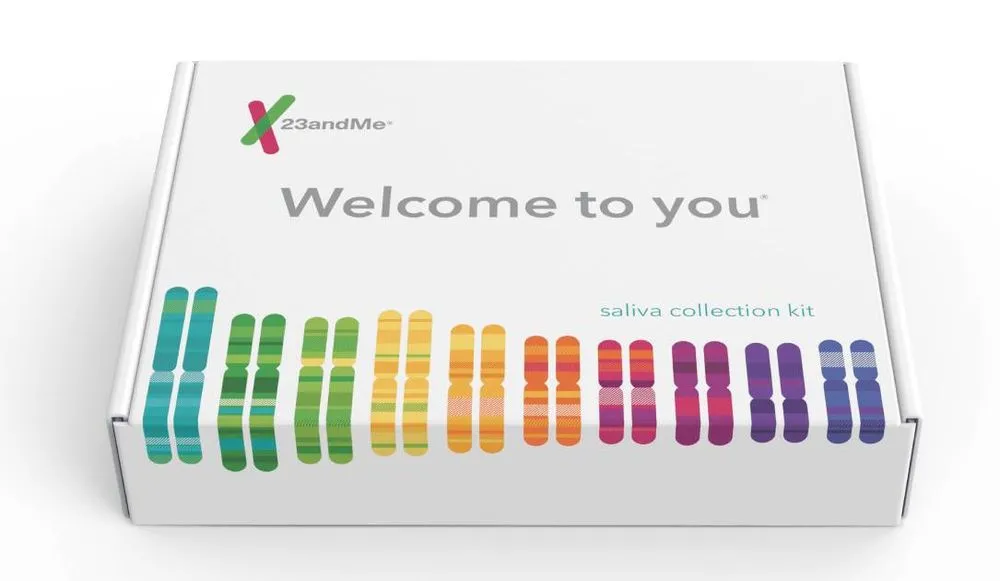23andMe scraping incident leaked data on 1.3 million users of Ashkenazi and Chinese descent
Genetic testing giant 23andMe confirmed that a data scraping incident resulted in hackers gaining access to sensitive user information and selling it on the dark web.
The information of nearly 7 million 23andMe users was offered for sale on a cybercriminal forum this week. The information included origin estimation, phenotype, health information, photos, identification data and more. 23andMe processes saliva samples submitted by customers to determine their ancestry.
When asked about the post, the company initially denied that the information was legitimate, calling it a “misleading claim” in a statement to Recorded Future News.
The company later said it was aware that certain 23andMe customer profile information was compiled through unauthorized access to individual accounts that were signed up for the DNA Relative feature — which allows users to opt in for the company to show them potential matches for relatives.
“We do not have any indication at this time that there has been a data security incident within our systems. Rather, the preliminary results of this investigation suggest that the login credentials used in these access attempts may have been gathered by a threat actor from data leaked during incidents involving other online platforms where users have recycled login credentials,” they said.
“We believe that the threat actor may have then, in violation of our terms of service, accessed 23andme.com accounts without authorization and obtained information from those accounts. We are taking this issue seriously and will continue our investigation to confirm these preliminary results.”

A screenshot from the posting of 23andMe data on the BreachForums site.
When pressed on how compromising a handful of user accounts would give someone access to millions of users, the spokesperson said the company does not believe the threat actor had access to all of the accounts but rather gained unauthorized entry to a much smaller number of 23andMe accounts and scraped data from their DNA Relative matches.
The spokesperson declined to confirm the specific number of customer accounts affected.
Anyone who has opted into DNA Relatives can view basic profile information of others who make their profiles visible to DNA Relative participants, a spokesperson said.
Users who are genetically related can access ancestry information, which is made clear to users when they create their DNA Relatives profile, the spokesperson added.
Once the company has more information from the investigation, they said, it will determine the best approach to notifying any impacted customers.
‘A botch job’
The incident shows how a company's customer data can be vulnerable even if intruders don't get deep into its network.
A researcher approached Recorded Future News after examining the leaked database and found that much of it looked real. The researcher spoke on condition of anonymity because he found the information of his wife and several of her family members in the leaked data set. He also found other acquaintances and verified that their information was accurate.
The researcher downloaded two files from the BreachForums post and found that one had information on 1 million 23andMe users of Ashkenazi heritage. The other file included data on more than 300,000 users of Chinese heritage.
The data included profile and account ID numbers, names, gender, birth year, maternal and paternal genetic markers, ancestral heritage results, and data on whether or not each user has opted into 23andme’s health data.
“It appears the information has been scraped from user profiles which are only supposed to be shared between DNA Matches. So although this particular leak does not contain genomic sequencing data, it’s still data that should not be available to the public,” the researcher said.
“23andme seems to think this isn’t a big deal. They keep telling me that if I don’t want this info to be shared, I should not opt into the DNA relatives feature. But that’s dismissing the importance of this data which should only be viewable to DNA relatives, not the public. And the fact that someone was able to scrape this data from 1.3 million users is concerning. The hacker allegedly has more data that they have not released yet.”
The researcher added that he discovered another issue where someone could enter a 23andme profile ID, like the ones included in the leaked data set, into their URL and see someone’s profile.
The data available through this only includes profile photos, names, birth years and location but does not include test results.
“It’s very concerning that 23andme has such a big loophole in their website design and security where they are just freely exposing peoples info just by typing a profile ID into the URL. Especially for a website that deals with people's genetic data and personal information. What a botch job by the company,” the researcher said.
“I’ve tried contacting 23andme however they keep denying that there is anything wrong and are replying with cookie cutter responses. I don’t know how to prove this without doxing myself. But this is pretty serious and no one is taking it seriously.”
The security policies of genetic testing companies like 23andMe have faced scrutiny from regulators in recent weeks. Three weeks ago, genetic testing firm 1Health.io agreed to pay the Federal Trade Commission (FTC) a $75,000 fine to resolve allegations that it failed to secure sensitive genetic and health data, retroactively overhauled its privacy policy without notifying and obtaining consent from customers whose data it had obtained, and tricked customers about their ability to delete their data.
Jonathan Greig
is a Breaking News Reporter at Recorded Future News. Jonathan has worked across the globe as a journalist since 2014. Before moving back to New York City, he worked for news outlets in South Africa, Jordan and Cambodia. He previously covered cybersecurity at ZDNet and TechRepublic.



